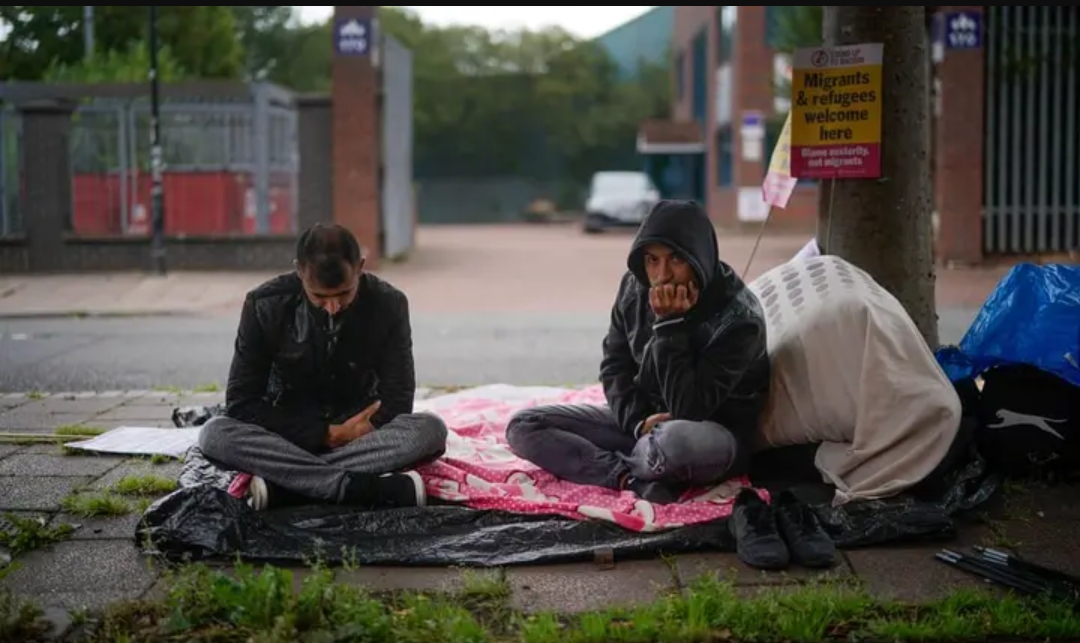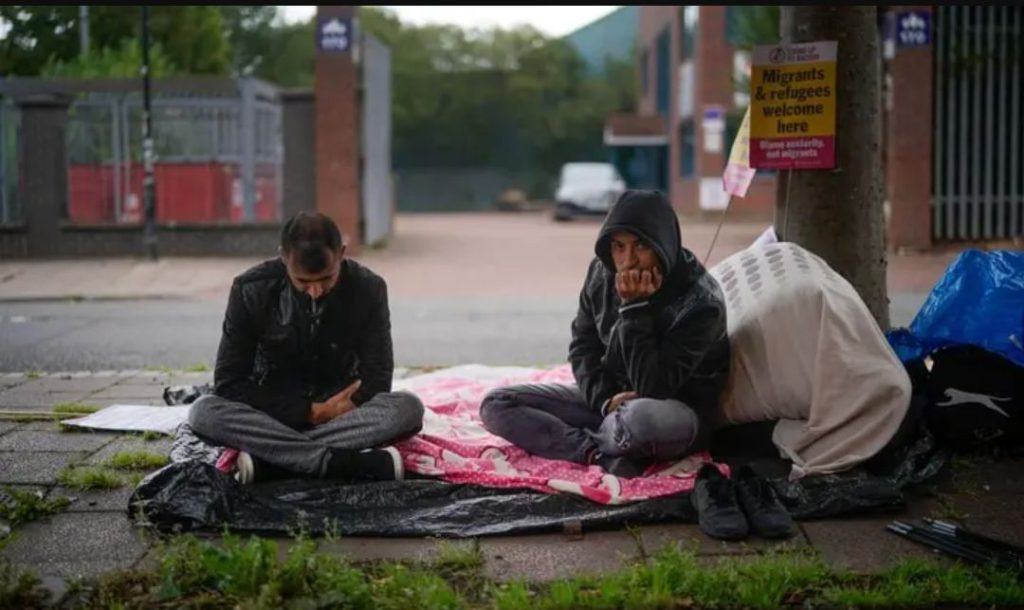
In the heart of Sheffield, a silent crisis unfolds as asylum seekers, awaiting decisions that take years, find themselves thrust into homelessness within days of eviction.
The emotional toll is staggering, as Blessan Babu, a member of the Sheffield Project for Refugee Integration & Growth (SPRING), attests. “The trauma is absolutely huge,” he emphasizes, describing the heart-wrenching scenes of people shivering, bursting into tears, and navigating the unfamiliar streets of a city that was once a perceived safe haven, as reported by The Big Issue.

Since the resumption of asylum hotel evictions on January 3, 2024, SPRING has been confronting the harsh reality of refugees finding themselves on the streets abruptly.
Even those who have obtained refugee status are not spared. In one instance, a woman granted refuge ended up sleeping in a park, while another man, who had waited an agonizing 22 years for a Home Office decision, found himself destitute within days.
The urgency of the situation is evident in the numbers: within a week of evictions recommencing after a Christmas pause, SPRING witnessed 16-20 individuals freshly evicted, with a staggering 95% of them left homeless. The grim reality is that unless you are pregnant or have a child, falling under the category of “priority need,” avoiding the streets becomes an insurmountable challenge.
Refugees, having recently been granted leave to remain in the UK after enduring harrowing experiences, are thrust “from burning bush to a flaming oil situation,” in the words of Blessan Babu. The suddenness of the transition exacerbates the difficulty faced by those already grappling with the trauma of displacement.
As UK Prime Minister Rishi Sunak pledged to clear the legacy asylum backlog by the end of 2023, the Home Office intensified its efforts, resulting in tens of thousands of decisions. Unfortunately, this led to an unprecedented surge in evictions from asylum hotels. Simultaneously, a policy change in August reduced the time granted to those evicted to secure alternative accommodations, contributing to a surge in mass homelessness.
The crisis prompted two crucial policy reversals. First, an extension of the time granted to newly-recognized refugees before eviction, and second, a pause in evictions during extreme weather conditions and over Christmas. Yet, despite these adjustments, data obtained by The Big Issue indicates a troubling trend. The number of refugees evicted into homelessness doubled in August 2023, rising from 21 in July to 40 in August, with an additional 43 in September.
Now, as evictions resume in January 2024, the impact is keenly felt in Sheffield. Blessan Babu anticipates a continuation of chaos in the coming weeks, exacerbating the challenges faced by the evicted refugees. Beyond homelessness, he highlights the vulnerability of these individuals to exploitation, including modern slavery and human trafficking.
“This is pushing and forcing people into exploitation when they are supposed to be supported by the statutory authority,” warns Babu, underscoring the urgent need for comprehensive and compassionate solutions to address the multifaceted challenges faced by refugees in Sheffield and beyond.




